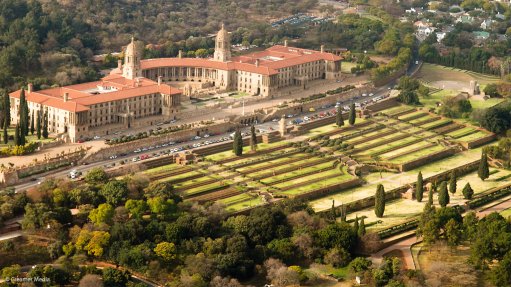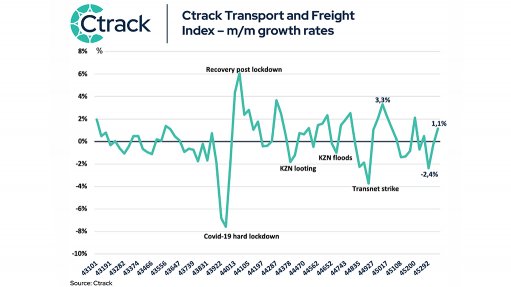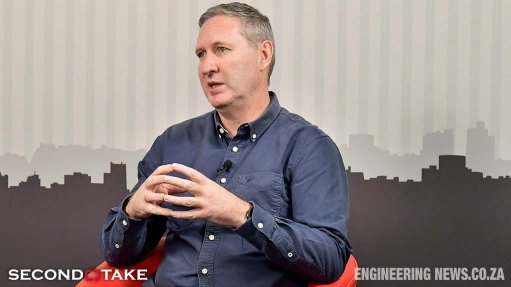Transformation, economy key topics in Mining Indaba Ministerial Symposium report
A report from this year’s Mining Indaba Ministerial Symposium, sponsored by Deloitte, has been released.
The symposium, which was held in February during the Investing in African Mining Indaba, in Cape Town, brought Africa’s mining leadership together amid a global economic slowdown, record-high inflation and geopolitical fragmentation to discuss vital strategies to build Africa up in the coming decades.
The aim behind the symposium was for leaders to find solutions to steer Africa past its challenges and onto the pathways where Africa’s rich mineral deposits can contribute to human development, Mining Indaba advisory board co-chairperson Frans Baleni said.
This year’s Ministerial Symposium brought together key high-level industry players to explore mining opportunities through dialogues among 73 C-level mining executives, 22 Ministers, seven ambassadors and high commissioners, and 49 government officials to strengthen public-private collaboration.
Anglo American South Africa chairperson and Minerals Council South Africa president Nolitha Fakude said that, 13 years since the development of the Africa Mining Vision – which was drafted by continental body the African Union to ensure “transparent, equitable and optimal exploitation of mineral resources to underpin broad-based sustainable growth and socio-economic development” – the drive to achieve these goals is stronger than it has ever been.
“Africa is looking for mining policymakers to create solutions that steer the continent to use and maximise its resources – especially for the upliftment of local economies,” she said.
Fakude said the future of mining would need to connect with emerging and next-generation societal values, such as responsible technologies, innovation, sustainability, and shared prosperity, to shape a different future society within a just transition.
“Mining needs to be the catalyst not only for economic development, but also for a decarbonising world. A stable and predictable policy environment will help encourage investor relations.
“Fast-tracking processes, while protecting the environment and providing confidence in energy supply and logistics, will help attract value-adding investments to create jobs, increase living standards, and improve infrastructure in mining communities,” she said.
TRANSFORMATION
Mineral Resources and Energy Minister Gwede Mantashe said transformation was a critical aspect of improving Africa.
“This includes decarbonising economies, despite still developing and overcoming energy poverty. It also includes ensuring that the transition is just. Africa has the opportunity to be a key driver of the global energy transition. A transition that shifts economies from a state of high to low-carbon emissions must be done in a way that sustains livelihoods,” Mantashe said.
This move, which he said South Africa would need to make, would include things such as a transition from coal to renewables and the creation of alternate economic activities in affected areas and communities.
“These need to be carefully considered. Such a transition must support and empower industrialisation, while furthering exploration and investment in the minerals of the future, which many African economies hold,” Mantashe said.
He added that future mining would need links to processing these minerals and adding further value through local manufacturing. Rather than importing and being consumers of these final products, making the components for the transition – through localisation programmes and regional integration that will help cushion economies from shocks – will help make this transition just for affected African countries.
“This must go hand in hand with creating a safer and more productive industry, avoiding race-to-the-bottom policies in the region,” Mantashe said.
INFLATION
South African Reserve Bank (SARB) Governor Lesetja Kganyago said high inflation and a weak economic growth outlook remained notable risks this year, an outlook which impacted the mining sector.
“For example, electricity price inflation and core inflation increases due to wage inflation affect both companies’ bottom lines and workers’ wages. Wages constitute about 38% of the total cost of the mining sector in South Africa, so wage-price inflation matters,” he noted.
To protect the income of the working population, the role of the SARB and other central banks is to arrest rising inflation. Failing to do so will result in the erosion of workers’ incomes.
“Still, the average mineworker’s wage increase has outpaced inflation due to higher commodity prices. However, when commodity supercycles correct, commodity prices come down again,” he explained.
Kganyago explained that, when real incomes are eroded because of inflation, unions would bargain for higher increases, in turn, affecting inflation expectations and driving inflation even higher.
“Higher wage increase settlements result in higher inflation expectations. A growing proportion of agreements will need to factor in more moderate increases to anchor inflation expectations,” he said.
While South Africa’s growth problem is outside of monetary policy – directly relating to insufficient energy supply and other well-understood constraints – the global economy is set to have new legs in the coming months, including China’s reopening, which is likely to create tailwinds for the mining sector, Kganyano explained.
“The underlying risk is that relying on such external tailwinds is not a sustainable growth model for economies. In South Africa’s case, economic reforms to eradicate various bottlenecks to growth are crucial. Attracting private investment in renewable energy solutions is also vital to creating conditions for upward revisions to economic growth,” he said.
Minerals Council CEO Roger Baxter noted that achieving the Paris Agreement and delivering on the potential that it holds for Africa will be a function of regulatory systems, governance, and partnerships between governments, companies and many other stakeholders.
“While talking about energy transformation is vital, it is more important to act on the opportunity, which requires leadership collaboration at the institutional, governmental, Ministerial and private-sector levels,” he said.
Comments
Press Office
Announcements
What's On
Subscribe to improve your user experience...
Option 1 (equivalent of R125 a month):
Receive a weekly copy of Creamer Media's Engineering News & Mining Weekly magazine
(print copy for those in South Africa and e-magazine for those outside of South Africa)
Receive daily email newsletters
Access to full search results
Access archive of magazine back copies
Access to Projects in Progress
Access to ONE Research Report of your choice in PDF format
Option 2 (equivalent of R375 a month):
All benefits from Option 1
PLUS
Access to Creamer Media's Research Channel Africa for ALL Research Reports, in PDF format, on various industrial and mining sectors
including Electricity; Water; Energy Transition; Hydrogen; Roads, Rail and Ports; Coal; Gold; Platinum; Battery Metals; etc.
Already a subscriber?
Forgotten your password?
Receive weekly copy of Creamer Media's Engineering News & Mining Weekly magazine (print copy for those in South Africa and e-magazine for those outside of South Africa)
➕
Recieve daily email newsletters
➕
Access to full search results
➕
Access archive of magazine back copies
➕
Access to Projects in Progress
➕
Access to ONE Research Report of your choice in PDF format
RESEARCH CHANNEL AFRICA
R4500 (equivalent of R375 a month)
SUBSCRIBEAll benefits from Option 1
➕
Access to Creamer Media's Research Channel Africa for ALL Research Reports on various industrial and mining sectors, in PDF format, including on:
Electricity
➕
Water
➕
Energy Transition
➕
Hydrogen
➕
Roads, Rail and Ports
➕
Coal
➕
Gold
➕
Platinum
➕
Battery Metals
➕
etc.
Receive all benefits from Option 1 or Option 2 delivered to numerous people at your company
➕
Multiple User names and Passwords for simultaneous log-ins
➕
Intranet integration access to all in your organisation

















